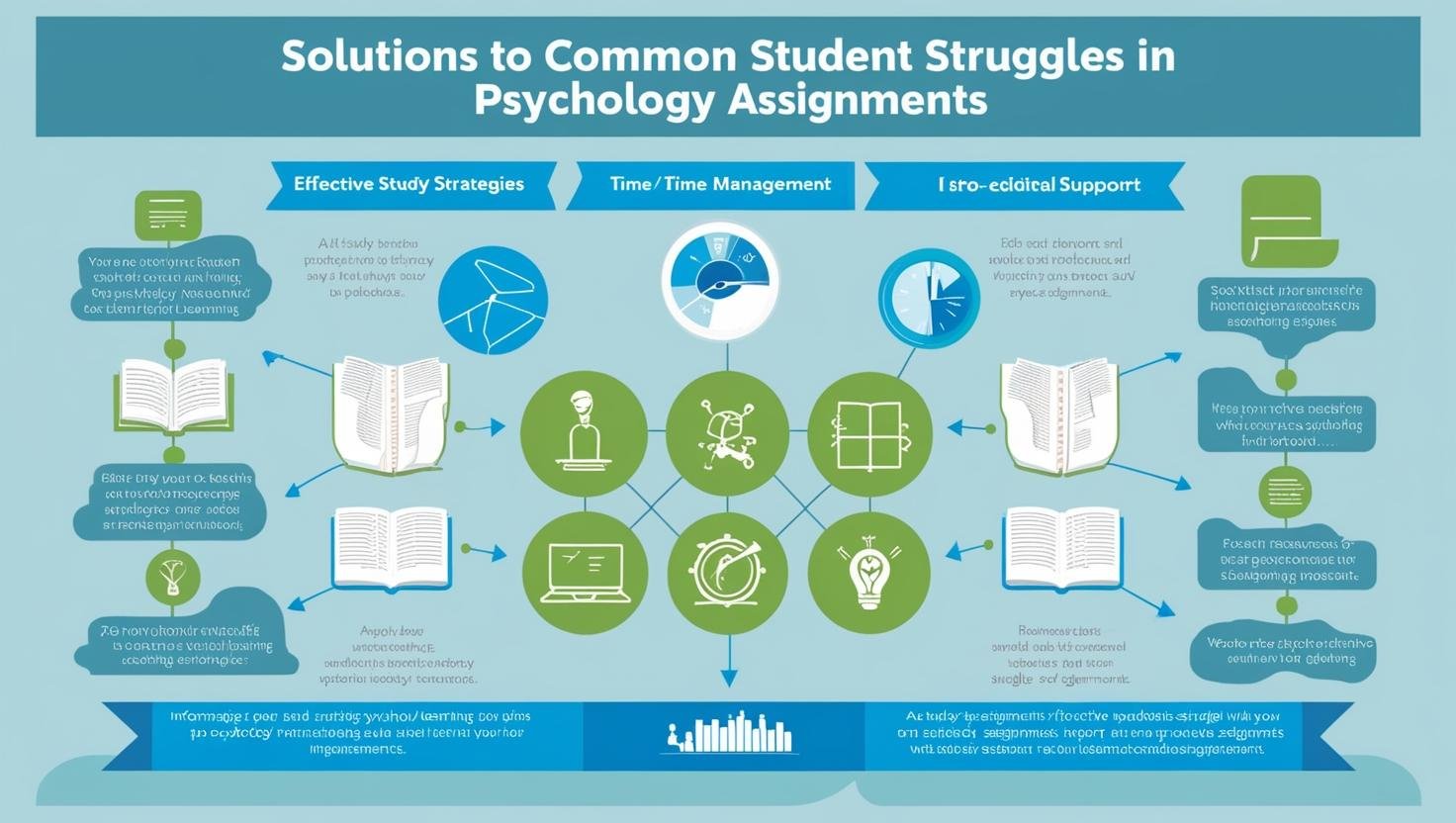Bridging the Knowledge Gap: Solutions to Student Struggles in Psychology Assignments

Psychology assignments can be a real brain teaser, no doubt about that. A lot of students dive into the subject thinking it’s all about analyzing people and reading minds (thanks, Hollywood). But once the coursework kicks in, reality hits—hard. Concepts like cognitive dissonance, behavioral conditioning, and neuroplasticity start flying at ‘em, and suddenly, it's not so simple anymore.
So, what’s the deal? Why do students struggle with psychology assignments, and more importantly, how can they bridge that knowledge gap? Let’s break it down in a way that won’t make your head spin.
The Knowledge Gap: Why It Feels Like a Black Hole
First thing first, psychology is a blend of science and philosophy, making it one tricky beast to tackle. Some students have a solid grip on theories but fumble when applying them to real-world scenarios. Others struggle with the research-heavy nature of the subject. And then there’s the writing part—oh boy, let’s not even get started.
Here are a few reasons why psychology assignments feel like an uphill battle:
1. Complex Theories That Just Won’t Stick
Ever tried wrapping your head around Freud’s psychoanalytic theory or Piaget’s stages of cognitive development? Some theories are intuitive, but others feel like deciphering an ancient script. Students often get lost in the jargon, making it hard to apply theories effectively in their assignments.
2. Research Fatigue Is Real
Psychology assignments usually require a ton of research. And not just any research—credible, peer-reviewed journal articles that don’t always make for light reading. Digging through databases like PsycINFO and Google Scholar takes time, and honestly, most students ain’t got that kind of patience.
3. Writing in an Academic Style Feels Unnatural
Writing psychology papers ain’t like sending a text to your friend. The academic tone, citations, and structured arguments can feel robotic, and let’s be real—forcing that level of formality can suck the fun out of writing.
4. Time Management? What’s That?
Between juggling classes, part-time jobs, and social lives, students often put off their psychology assignments until the last minute. And let’s be honest, nothing screams "quality work" like a 2,000-word paper written at 3 AM fueled by caffeine and desperation.
5. Lack of Interest (Let's Be Honest Here)
Not everyone taking a psych class is looking to be the next Freud or Jung. For some, it's just a mandatory course, and that lack of passion can make assignments feel like pure torture.
Bridging the Gap: Practical Solutions That Actually Work
Alright, enough of the doom and gloom. Let’s talk solutions. There are ways to make psychology assignments less of a headache, and no, it doesn’t involve bribing your professor (tempting, but not advisable).
1. Make Friends with Flashcards
When theories and terms get overwhelming, flashcards can be a lifesaver. Apps like Anki and Quizlet make memorization way easier. A few quick study sessions before diving into an assignment can help concepts stick.
2. Psychology Assignment Help (Yep, It Exists!)
Sometimes, you just need an extra hand. Whether it's online tutoring, study groups, or professional Psychology Assignment Help, getting external guidance can make a world of difference. There’s no shame in reaching out for help when you need it—better that than staring at a blank screen for hours.
3. Break It Down Like a Pro
Chunking information is a fancy way of saying "divide and conquer." Instead of looking at an assignment as one massive task, break it into smaller sections. Outline your key points before you start writing—it’ll save you from a whole lotta frustration later.
4. Find Real-World Applications
Psychology is literally everywhere. From marketing strategies to daily conversations, the theories you study are at play all around you. Applying concepts to real-life examples can make them more digestible and, dare we say, interesting?
5. Get Cozy with Academic Writing
Writing in an academic style takes practice. The more you do it, the less painful it becomes. Reading psychology journal articles can help you pick up the tone and structure naturally. And yeah, tools like Grammarly and Hemingway Editor can help clean up your work without making it sound robotic.
6. Manage Time Like a Boss
Procrastination is a silent killer of good grades. Setting mini-deadlines for different parts of your assignment can keep you from pulling those dreaded all-nighters. A little planning goes a long way.
7. Use Your Professor’s Office Hours (Seriously, Do It!)
A lotta students avoid office hours like the plague, but professors are literally there to help. A quick chat can clear up confusion and make your assignment way easier to tackle. Plus, it shows initiative—always a good look.
8. Practice, Practice, and More Practice
Psychology, like any other subject, gets easier the more you engage with it. Join discussions, participate in class debates, and stay curious. The more you immerse yourself in the material, the less it feels like work.
Psychology assignments don’t have to feel like an endless battle. Yeah, the subject can be tricky, but with the right strategies (and maybe a little outside help), you can totally bridge that knowledge gap.
Whether it’s breaking down theories, refining your writing, or seeking Psychology Assignment Help the key is to work smarter, not harder. And hey, if all else fails—just remember, even Freud had his off days.
Read More-From Pseudocode to Panic Why CS Students Struggle with Problem Sloving
- Educação
- Course
- Books
- Drawing
- Seção
- Film
- Fitness
- Food
- Jogos
- Gardening
- Health
- Início
- Literature
- Music
- Networking
- Outro
- Programming
- Religion
- Shopping
- Sports
- Curriculm
- Wellness


